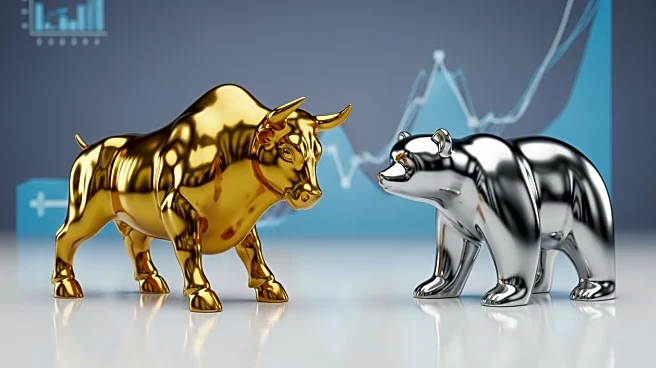What's Happening?
Warren Buffett's Berkshire Hathaway is experiencing a significant underperformance compared to the S&P 500, marking the largest gap so far this year. Berkshire's B shares have rebounded by 7.2% since their near-term low in August, resulting in a year-to-date
gain of 8.6%. However, the S&P 500 has risen by 15.5% year-to-date, widening the performance gap to 6.9 percentage points. This underperformance is partly attributed to Berkshire's decision to sell a substantial portion of its Apple shares, which have surged in value. Despite the sales, Apple remains Berkshire's largest equity position. Buffett has expressed that Berkshire does not mind paying taxes, currently at a 21% federal rate on gains from Apple, and anticipates higher capital gains tax rates in the future.
Why It's Important?
The underperformance of Berkshire Hathaway relative to the S&P 500 highlights the challenges faced by traditional investment strategies in a rapidly evolving market. As Berkshire reduces its stake in Apple, it potentially misses out on significant gains, which could impact shareholder returns. The decision to sell shares before potential tax rate increases reflects strategic financial planning, but also underscores the complexities of managing large investment portfolios. This situation may influence investor sentiment and confidence in Berkshire's long-term strategy, especially as Buffett prepares to step down as CEO.
What's Next?
Berkshire Hathaway is expected to release updated share counts in mid-November, which will provide further insights into its investment strategy. Investors and analysts will closely monitor these developments to assess the impact on Berkshire's portfolio and overall performance. Additionally, the anticipated increase in capital gains tax rates could prompt other companies and investors to reevaluate their strategies, potentially leading to shifts in market dynamics.
Beyond the Headlines
The decision to sell Apple shares and the resulting tax implications highlight broader discussions about corporate tax policies and their impact on investment decisions. As fiscal policies evolve, companies may need to adapt their strategies to mitigate tax liabilities while maximizing returns. This scenario also raises questions about the role of taxes in shaping corporate behavior and the potential consequences for economic growth.
















